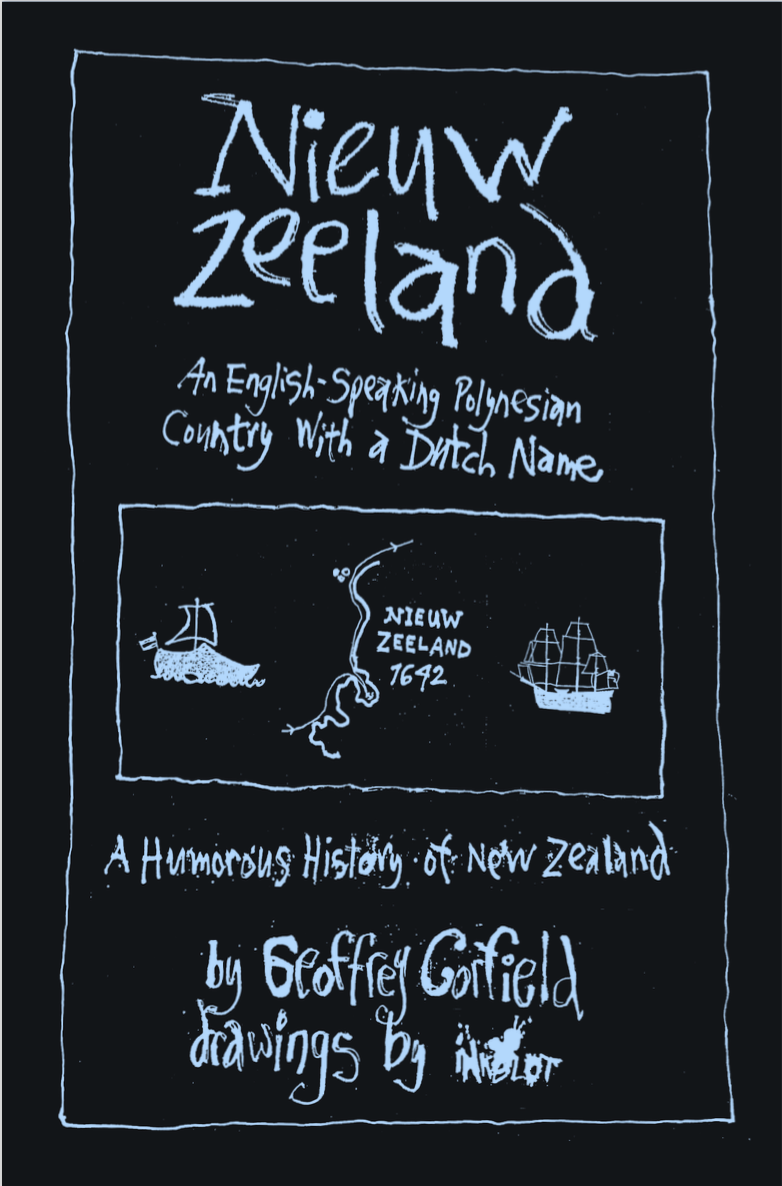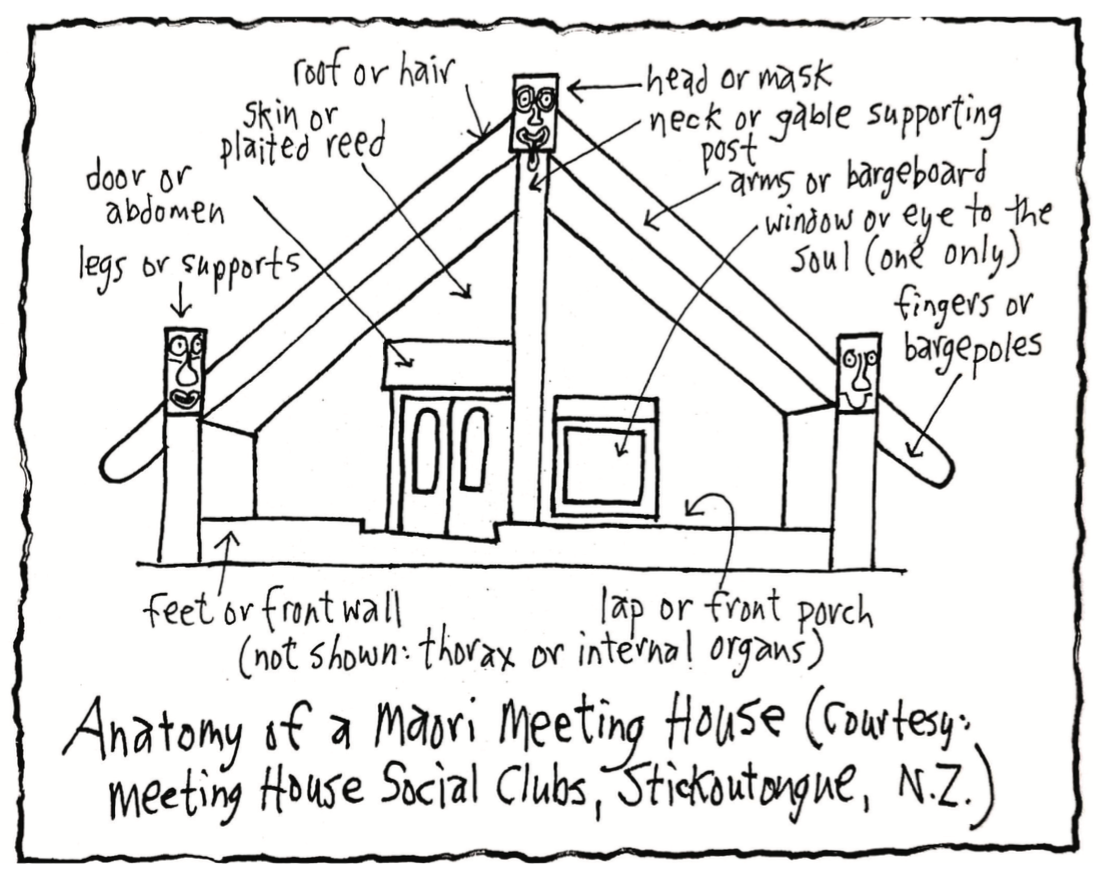Table of Contents
Do you remember the days of serialised radio shows and novels? A serial book is a work of fiction or non-fiction that is published in sequential pieces called instalments. These instalments can be published at nearly any interval for nearly any period of time, though weekly and monthly instalments are most typical.
Every Wednesday we will be publishing half a chapter of Nieuw Zeeland An English-Speaking Polynesian Country with a Dutch Name: A Humorous History of New Zealand by Geoffrey Corfield.
It is a MUST read as it has had the infamy of being rejected by non-other than that bastion of balance, Otago University.
Kia ora Geoff
Thank you for the book. I can see that you are a clever man, and some of your ideas are really witty. But in writing a ‘humorous history’ of New Zealand you display a lack of knowledge of and sensitivity for the protocols that bind us as a bicultural nation, and the story of ruthless colonisation that underpins New Zealand’s history. […] it transgresses so many aspects of Maoritanga.
For instance, your sketches of Te Rauparaha and Hongi Hika would certainly cause offence to the ancestors of these great warrior rangatira. Throw-away comments, such as ‘Maori are complicated people’ (and therefore to blame for something), brand this publication Eurocentric and untenable. Mockery of Maori, eg of King Tawhiao Potatau (‘From King Potato II we get the rhyme: “One potato, two potato, three potato, four”’) is unacceptable.[…]
Nga mihi
Otago University

Part one: A Humorous History of NZ
Chapter One: Part two.
They were a tribal people and they had tribal names, but no name for all of themselves living together in New Zealand; because they didn’t all live together in New Zealand, they lived as separate tribes, in many cases deadly enemies of each other.
But the British didn’t know this, and they gave them a name based on one of their own words which they thought was the name for all of them: “Maori”. But it wasn’t. It was a word which meant “normal or ordinary person”. Everyone in a tribe was normal or ordinary. Everybody else wasn’t. Including those from other tribes. The Maori didn’t have a name for all of themselves, the British gave it to them.
The British certainly weren’t normal or ordinary. They were abnormal and unordinary. And they were also white. The Maori called them “Pakeha”. It’s a Maori word the British thought meant “stranger or white person”, but it didn’t (how could it, the Maori had never seen white people before to have a name for them). It meant “white turnip”. But the British didn’t know this. So they just gave themselves the Maori name “Pakeha”.

The names stuck. Both these words are still in use today. The native inhabitants of New Zealand are called “Maori”. It’s a Maori word given to the Maori people by the white turnip people. Non-Maori people in New Zealand are called “Pakeha”. It’s a Maori word given to the white turnip people by the white turnip people themselves.
The word “Pakeha” is used in lots of books about New Zealand. But not this one. Non-Maori people in New Zealand could be called white or Europeans or British. But they’re not all white, they’re not all European, and they’re not all British. But more of them are British than anything else. So in this book non-Maori people in New Zealand are called British or New Zealanders, depending upon the time in history they’re being referred to. Of course, Maori people are New Zealanders too. In the end they’re all New Zealanders. Confusing, but not overly complicated.
As well as not having a name, the Maori had no written language either, so the British gave them one of these too. They began working on a Maori dictionary almost as soon as they arrived in New Zealand. Little did they know it though, but the Maori would be quick learners, and they would soon be reading and writing in both languages and firing off letters to the Governor and the King or Queen with the best of them.
The Maori had a tribal system of society, and the British had a colonial government system. Tribal system and government system. Iwi (tribes) and departments. Utu (revenge) and courts. Ariki (chief) and ministers. Mana (prestige) and Bills. Tapu (sacred) and officials. Whare runanga (meeting house) and Assembly. Atua (spirits) and churches. Tohunga (priests) and missionaries. Hapu (sub-tribe) and Boards. Pa (fortified village) and blockhouse. Hikoi, commissioners, mauri, despatches, marae, Acts, urupa, reports, wairua, enquiries…
New Zealand history is complicated.
But before there are any Maori or Dutch or British in New Zealand, there is no New Zealand. The islands of New Zealand didn’t exist. They had to be formed.
Part one of Chapter two will be published next week.









